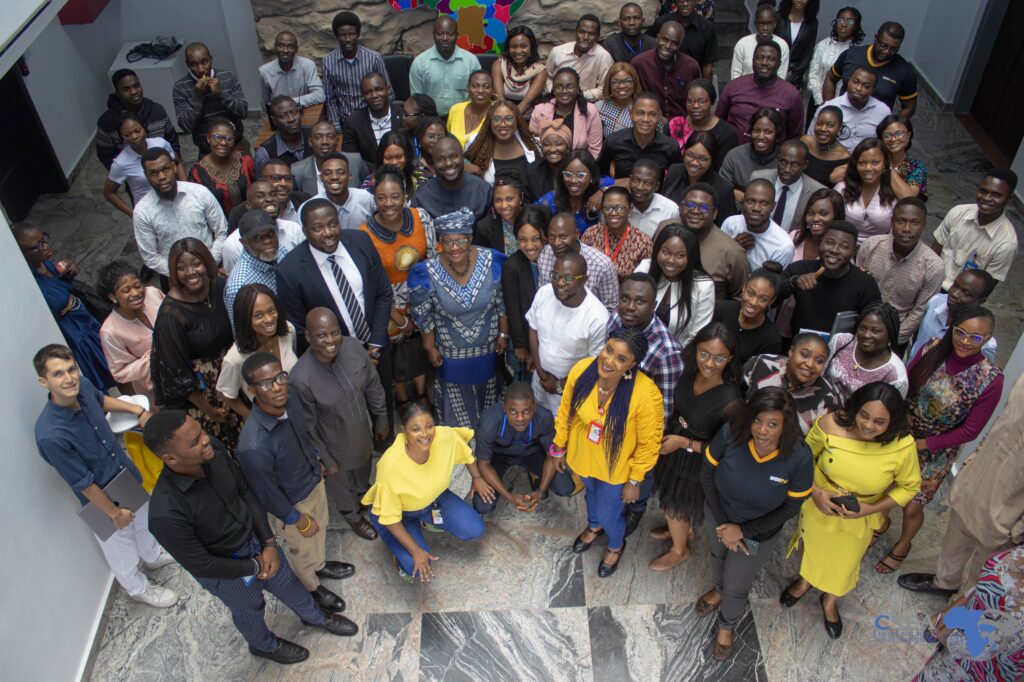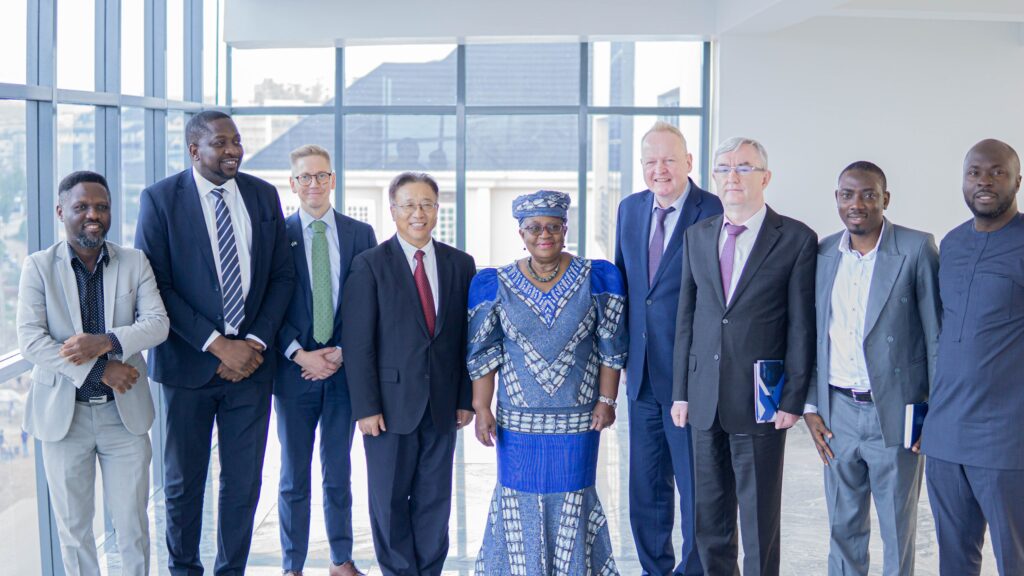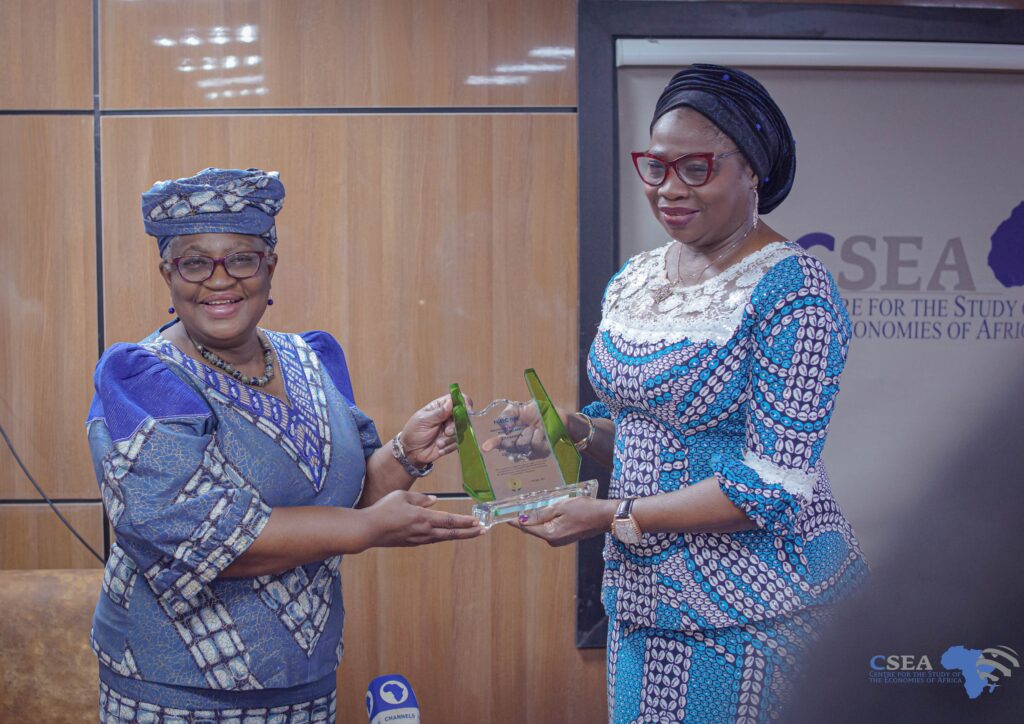


CSEA hosted its founder, Dr. Ngozi Okonjo-Iweala on Wednesday, August 9, 2023 at a breakfast session in Abuja Nigeria, together with the Ambassador of the People’s Republic of China to Nigeria Mr. Cui Jianchun; Ambassador of the Czech Republic in Nigeria, H.E. Zdeněk KREJČÍ; Lukas Schifferle, Deputy Head of Mission at Embassy of Switzerland in Nigeria; and Topias Tamminen Deputy Head of Mission at Embassy of Finland in Nigeria.
Also at the meeting was the Executive Director of CSEA, Dr. Chukwuka Onyekwena, the CEO of NOIPolls, Dr Chike Nwangwu and CSEA’s Director of Research, Dr. Adedeji Adeniran.

Dr Ngozi Okonjo-Iweala also received the Nigerians in the Diaspora Icon award from the Nigerians in Diaspora Commission (NIDCOM), presented by the CEO of NIDCOM , Hon. Abike Dabiri Erewa.

This study examines the effect of ICT on tax revenue mobilisation in 23 sub-Saharan African countries between 2000 and 2020. To address our objectives, it utilises a feasible generalised least squares approach that accounts for both heteroscedasticity and autocorrelation challenges. Particularly, six measures of ICT (import of ICT goods, export of ICT goods, ICT trade, internet penetration, mobile phone penetration, and aggregate ICT index) and six tax measures (total tax, direct tax, indirect tax, taxes on income, profit, and capital gains, taxes on goods and services, and taxes on international trade) are explored in the study.
This article was first published by the Development Bank of Nigeria (DBN) Journal of Economics and Sustainable Growth.
There was a general increase in transport fares across different modes of transportation in the country in December 2022. The report on transport fares released by the National Bureau of Statistics (NBS) in January 2023 revealed that the average fare paid by passengers for bus journey within the city per drop increased from N637.10 in November 2022 to N644.66 in December 2022, representing a 1.19% increase on a month-on-month basis.
According to the Food Prices Watch by the National Bureau of Statistics (NBS), the average price of some selected food items in the country rose in October 2022.1 The report showed that the average price of a 500g loaf of sliced bread rose year-on-year by 36.7% to N523.2 in October 2022. Also, 1kg of rice (local, sold loose) had an average price increase of 17.5% to N487.5 year-on-year in October 2022. Similarly, the average cost of 1 kg of beans increased by 18% to N564.7. In addition, the cost of a tuber of yam increased by 30.9% from N313.1 in October 2021 to N409.86 in October 2022. Food shortages, which occur due to several factors, including insecurity, flooding, and cultivation of low-yield seedlings, contribute to rising food costs. Rising food prices reduce the standard of living of millions of people in the country, as it reduces the purchasing power of people and makes basic meals less affordable. As shown in the recently launched Multidimensional poverty report, millions of Nigerians are poor and are experiencing food deprivation. Consequently, the government needs to prioritise interventions that would solve the problem of food shortages. The interventions might be in different forms, including the construction of irrigation systems, provision of fertilisers and improved seedlings, and strengthening security in agricultural farming areas. These interventions, if well executed, are expected to increase food production, and lower the rate of food price increases.
